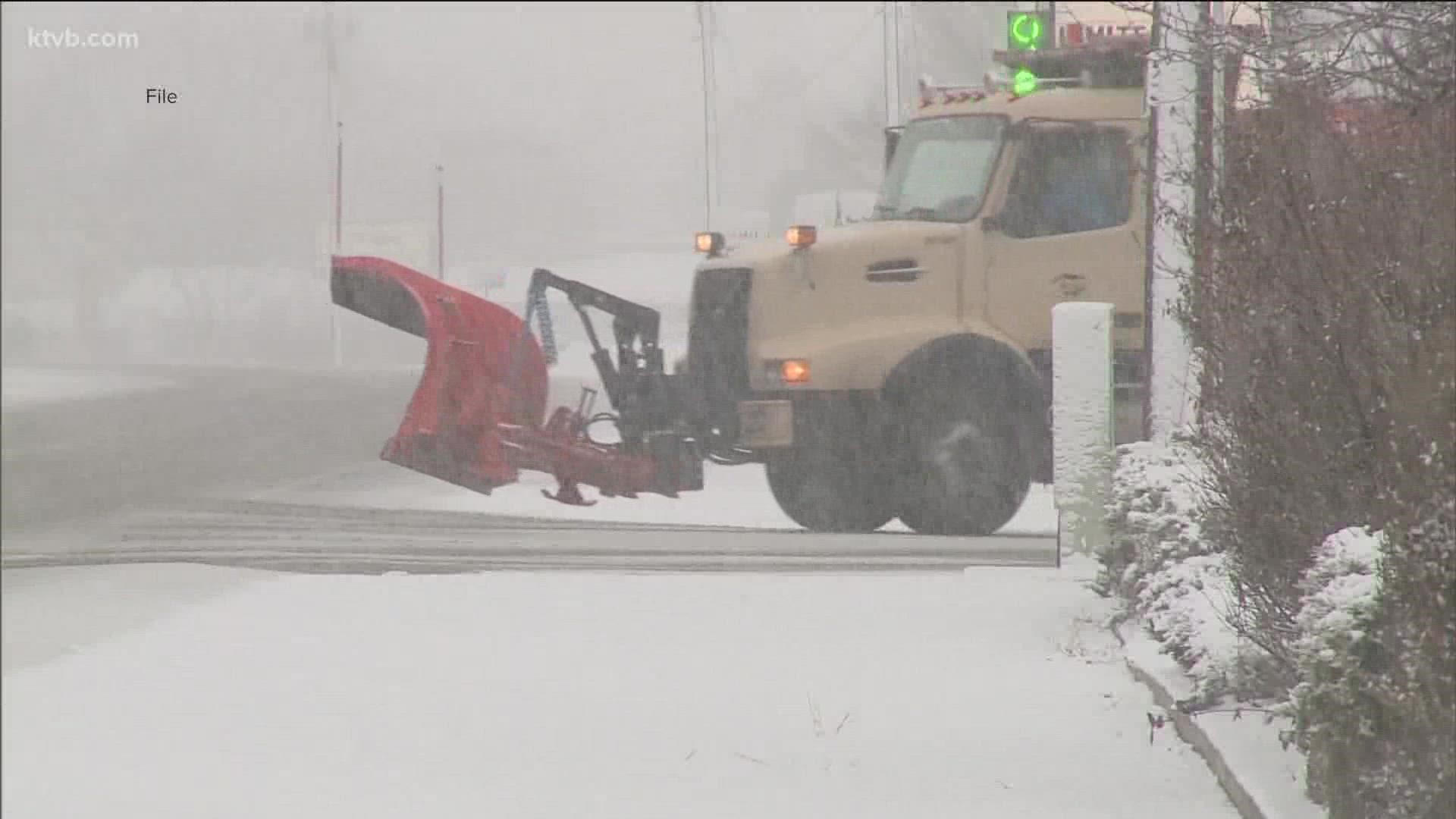BOISE, Idaho — Transportation agencies around the Treasure Valley had a busy holiday weekend treating and cleaning up roads as snow fell around the area. Crews are once again preparing for another busy few days as more snow and colder temperatures continue into the valley.
"As the snows been melting and the temperatures are going to drop some more, we're expecting the roads to ice up a little bit," Jennifer Berenger, the Ada County Highway District (ACHD) deputy director of maintenance said.
ACHD told KTVB Tuesday they will have a skeleton crew out at night monitoring roads where ice typically forms and performing necessary treatment, but the real work starts in the morning.
"Our crews will be coming in starting at one in the morning, a full crew complement," Berenger said. "They'll start in the deicing and just making sure that the roads are safe."
ACHD's toolbox of tricks to help treat the roads varies from salt, to sand and magnesium chloride.
"In fact magnesium chloride, that's our liquid anti-icing, that's kind of our 'go-to' tool," Berenger said. "The goal is to get the magnesium chloride onto the roads to prevent the bonding that happens. We don't want the ice to create a bond with the roadway."
Berenger explained crews will put the magnesium chloride on the ground to act as a dehydration fluid. She added it draws the liquid molecules to it, helping the road dry out.
For it to be effective, Berenger said crews have to treat the roads when it's around 15-35 degrees outside.
"If we get the magnesium chloride down too early we do run a risk of creating a more slick situation," Berenger said. "There is a right time to do that, ahead of the storm and in the middle of the storm."
When it gets below 15 degrees is when ACHD will opt for salt treatment on their roads.
ACHD is not the only team working through the holidays. The Idaho Transportation Department (ITD) is also monitoring conditions and clearing roads with their different treatment options.
"They're going to be pushing the snow as it accumulates," ITD spokesperson Jake Melder said. "Oftentimes, they'll be laying down salt that helps break up some of the ice, prevents it from building up and keeps things slushy."
Whereas ACHD's go-to is magnesium chloride, Melder told KTVB they often use salt on their highways and roads they operate because it is much safer than sand. Melder said smaller highway districts often use sand treatment to create some kind of traction on roads and it is easier to maintain. However, it limits the speed vehicles can go.
"We have seen a significant reduction in the number of crashes, particularly fatal crashes, as a result of our use of salt," Melder said.
According to Melder, salt reacts chemically with water to lower its freezing point which can have an effective melt on the snow.
While each department may have its "go-to" treatment option, different situations call for different forms of treatment.
"Our operators are specially trained folks," Melder said. "Some of our trucks are equipped with both salt and magnesium chloride. Depending on where they're at the on the road they may use different treatments and different features will act differently to different weather."
Both agencies work closely with the National Weather Service to get an idea of what the weather conditions may look like and plan accordingly.
ACHD is continuing to hire new crew members and post different job positions. However, Berenger said if there is a multi-day storm they will have enough manpower to ensure 100 percent coverage with 24-hour operations.
Watch more Local News:
See the latest news from around the Treasure Valley and the Gem State in our YouTube playlist:

